Marina Tsvetaeva
Name: Marina Tsvetaeva
Age: 48 years old
Growth: 163
Activity: poetess, prose writer, translator
Family status: was married
Marina Tsvetaeva: biography
Marina Ivanovna Tsvetaeva is a Russian poetess, translator, author of biographical essays and critical articles. She is considered one of the key figures in world poetry of the 20th century. Today, such poems by Marina Tsvetaeva about love as "Primed to the pillory ...", "Not an impostor - I came home ...", "Yesterday I looked into the eyes ..." and many others are called textbooks.
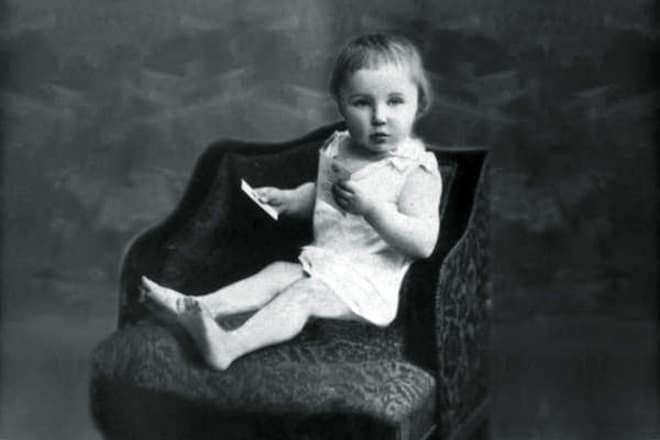 Childhood photo of Marina Tsvetaeva | M. Tsvetaeva Museum
Childhood photo of Marina Tsvetaeva | M. Tsvetaeva Museum Marina Tsvetaeva's birthday falls on the Orthodox holiday in memory of the Apostle John the Theologian. The poetess will later repeatedly reflect this circumstance in her works. A girl was born in Moscow, in the family of a professor at Moscow University, a famous philologist and art critic Ivan Vladimirovich Tsvetaev, and his second wife Maria Mein, a professional pianist, a student of Nikolai Rubinstein himself. On her father's side, Marina had a half-brother Andrey and a sister, as well as her own younger sister Anastasia. The creative professions of the parents left their mark on Tsvetaeva's childhood. Her mother taught her to play the piano and dreamed of seeing her daughter as a musician, and her father instilled a love for high-quality literature and foreign languages.
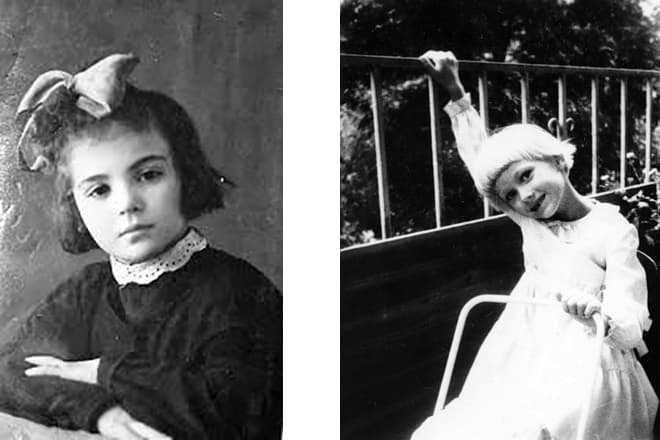 Children's photos of Marina Tsvetaeva
Children's photos of Marina Tsvetaeva It so happened that Marina and her mother often lived abroad, so she was fluent not only in Russian, but also in French and German. Moreover, when the little six-year-old Marina Tsvetaeva began to write poetry, she composed in all three, and most of all in French. The future famous poetess began to receive education in a Moscow private female gymnasium, and later studied in boarding schools for girls in Switzerland and Germany. At the age of 16, she tried to listen to a course of lectures on Old French literature at the Paris Sorbonne, but she did not finish her studies there.
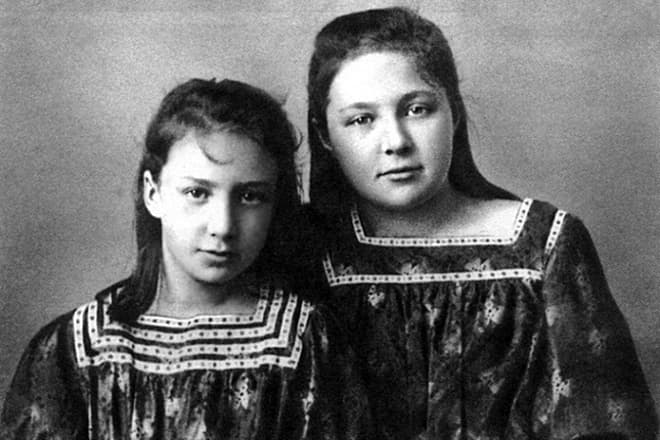 With sister Anastasia, 1911 | M. Tsvetaeva Museum
With sister Anastasia, 1911 | M. Tsvetaeva Museum When the poetess Tsvetaeva began to publish her poems, she began to communicate closely with the circle of Moscow symbolists and actively participate in the life of literary circles and studios at the Musaget publishing house. Soon the Civil War begins. These years had a very hard effect on the morale of the young woman. She did not accept and did not approve of the split of the homeland into white and red components. In the spring of 1922, Marina Olegovna seeks permission to emigrate from Russia and go to the Czech Republic, where her husband, Sergei Efron, who served in the White Army and now studied at Prague University, fled a few years ago.
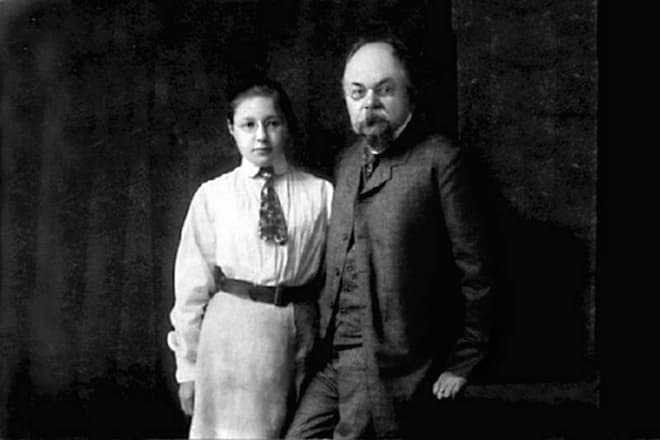 Ivan Vladimirovich Tsvetaev with his daughter Marina, 1906 | M. Tsvetaeva Museum
Ivan Vladimirovich Tsvetaev with his daughter Marina, 1906 | M. Tsvetaeva Museum For a long time, Marina Tsvetaeva's life was connected not only with Prague, but also with Berlin, and three years later her family was able to get to the French capital. But even there, the woman did not find happiness. She was depressingly affected by people's rumors that her husband was involved in a conspiracy against her son and that he had been recruited by the Soviet authorities. In addition, Marina realized that in her spirit she was not an immigrant, and Russia did not let go of her thoughts and heart.
Poems
The first collection of Marina Tsvetaeva called "Evening Album" was published in 1910. It mainly included her creations written during her school years. Quite quickly, the work of the young poetess attracted the attention of famous writers, especially Maximilian Voloshin, her husband, Nikolai Gumilyov, and the founder of Russian symbolism, Valery Bryusov, became interested in her. On the wave of success, Marina writes the first prose article "Magic in Bryusov's verses." By the way, a rather remarkable fact is that she published the first books with her own money.
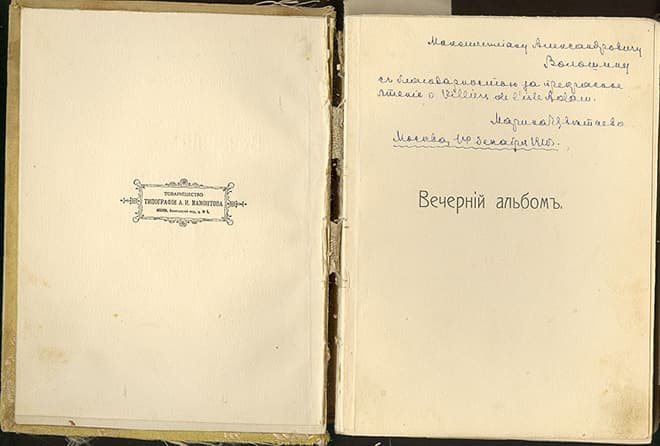 The first edition of "Evening Album" | Feodosia Museum of Marina and Anastasia Tsvetaev
The first edition of "Evening Album" | Feodosia Museum of Marina and Anastasia Tsvetaev Soon the Magic Lantern by Marina Tsvetaeva, her second poetry collection, was published, then the next work, From Two Books, was also published. Shortly before the revolution, the biography of Marina Tsvetaeva was associated with the city of Alexandrov, where she came to visit her sister Anastasia and her husband. From the point of view of creativity, this period is important in that it is full of dedications to close people and favorite places, and was later called by experts "Alexandrovsky summer of Tsvetaeva." It was then that the woman created the famous cycles of poems "To Akhmatova" and "Poems about Moscow."
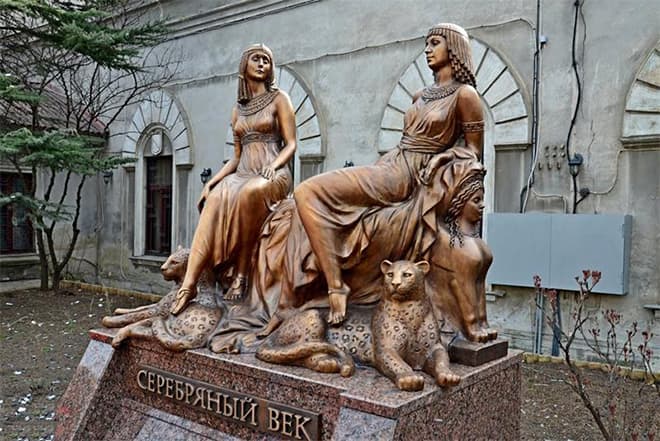 Akhmatova and Tsvetaeva as Egyptians. Monument "Silver Age", Odessa | panoramio
Akhmatova and Tsvetaeva as Egyptians. Monument "Silver Age", Odessa | panoramio During the civil war, Marina became sympathetic to the white movement, although, as mentioned above, she generally did not approve of the division of the country into conditional colors. During that period, she wrote poetry for the collection "Swan Camp", as well as large poems "The Tsar Maiden", "Egorushka", "On a Red Horse" and romantic plays. After moving abroad, the poetess composes two large-scale works - "The Poem of the Mountain" and "The Poem of the End", which will be among her main works. But most of the poems of the emigration period were not published. The last to be published was the collection "After Russia", which included the works of Marina Tsvetaeva until 1925. Although she never stopped writing.
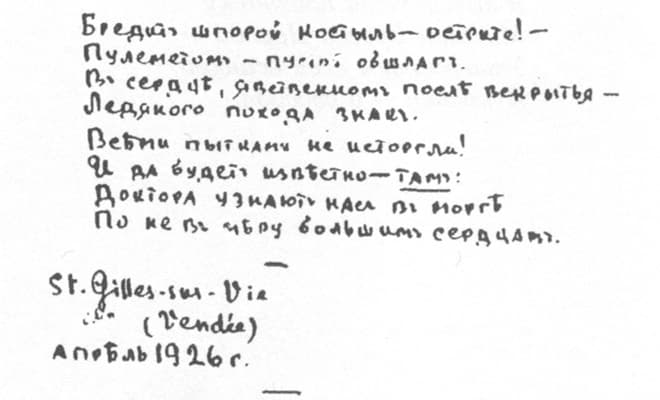 Marina Tsvetaeva's manuscript | Unofficial site
Marina Tsvetaeva's manuscript | Unofficial site Foreigners appreciated Tsvetaeva's prose much more - her memoirs about Russian poets Andrei Bely, Maximilian Voloshin, Mikhail Kuzmin, the books "My Pushkin", "Mother and Music", "House at the Old Pimen" and others. But they didn’t buy poetry, although Marina wrote a wonderful cycle “Mayakovsky”, for which the suicide of a Soviet poet became a “black muse”. The death of Vladimir Vladimirovich literally shocked the woman, which many years later can be felt when reading these poems by Marina Tsvetaeva.
Personal life
The poetess met her future husband Sergei Efron in 1911 at the house of her friend Maximilian Voloshin in Koktebel. Six months later, they became husband and wife, and soon their eldest daughter Ariadne was born. But Marina was a very passionate woman and at different times other men took over her heart. For example, the great Russian poet Boris Pasternak, with whom Tsvetaeva had an almost 10-year romantic relationship that did not stop even after her emigration.
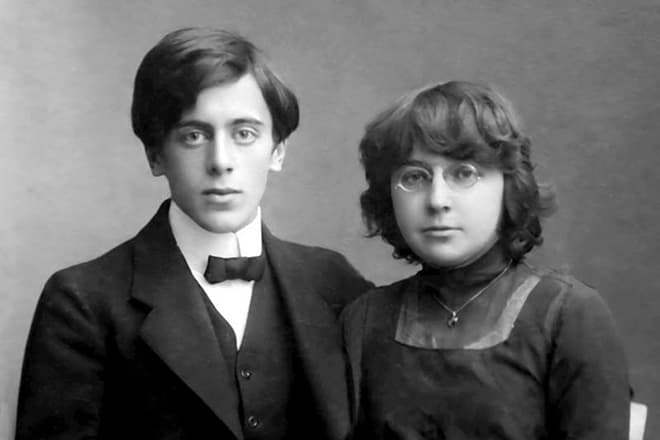 Sergei Efron and Tsvetaeva before their wedding | M. Tsvetaeva Museum
Sergei Efron and Tsvetaeva before their wedding | M. Tsvetaeva Museum In addition, in Prague, the poetess began a stormy romance with a lawyer and sculptor Konstantin Rodzevich. Their relationship lasted about six months, and then Marina, who dedicated the poem of the mountain full of violent passion and unearthly love to her lover, volunteered to help his bride choose a wedding dress, thereby putting an end to the love relationship.
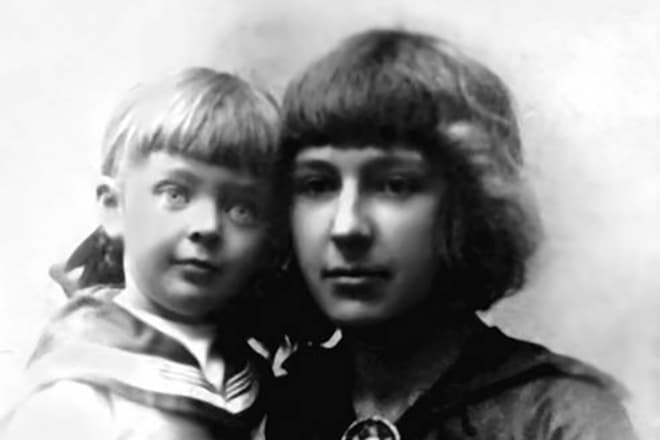 Ariadne Efron with her mother, 1916 | M. Tsvetaeva Museum
Ariadne Efron with her mother, 1916 | M. Tsvetaeva Museum But the personal life of Marina Tsvetaeva was connected not only with men. Even before emigrating, in 1914, she met in a literary circle with the poetess and translator Sophia Parnok. The ladies quickly discovered sympathy for each other, which soon grew into something more. Marina dedicated the cycle of poems “Girlfriend” to her beloved, after which their relationship came out of the shadows. Efron knew about his wife's affair, was very jealous, made scenes, and Tsvetaeva was forced to leave him for Sofia. However, in 1916 she broke up with Parnok, returned to her husband and a year later gave birth to a daughter, Irina. The poetess will later say about her strange connection that it is wild for a woman to love a woman, but only men alone are boring. However, Marina described her love for Parnok as "the first disaster in her life."
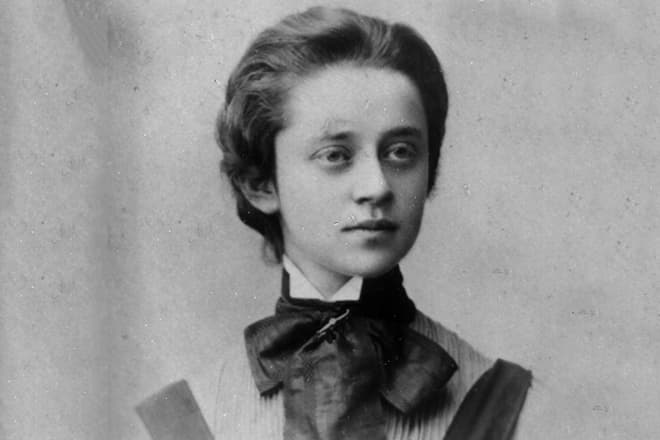 Portrait of Sofia Parnok | Wikipedia
Portrait of Sofia Parnok | Wikipedia After the birth of her second daughter, Marina Tsvetaeva faces a black streak in life. Revolution, husband's escape abroad, extreme need, famine. The eldest daughter Ariadna became very ill, and Tsvetaeva gives the children to an orphanage in the village of Kuntsovo near Moscow. Ariadne recovered, but fell ill and Irina died at the age of three.
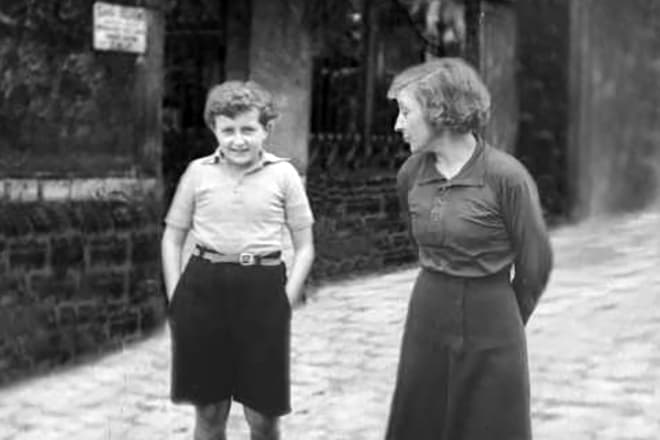 Georgy Efron with his mother | M. Tsvetaeva Museum
Georgy Efron with his mother | M. Tsvetaeva Museum Later, after reuniting with her husband in Prague, the poetess gave birth to a third child - the son of George, who was called "Mur" in the family. The boy was sickly and fragile, however, during the Second World War he went to the front, where he died in the summer of 1944. George Efron was buried in a mass grave in the Vitebsk region. Due to the fact that neither Ariadne nor George had their own children, today there are no direct descendants of the great poetess Tsvetaeva.
Death
In exile, Marina and her family lived almost in poverty. Tsvetaeva's husband could not work due to illness, George was just a baby, Ariadna tried to help financially by embroidering hats, but in fact their income was meager fees for articles and essays written by Marina Tsvetaeva. She called this financial situation slow death from hunger. Therefore, all family members constantly turn to the Soviet embassy with a request to return to their homeland.
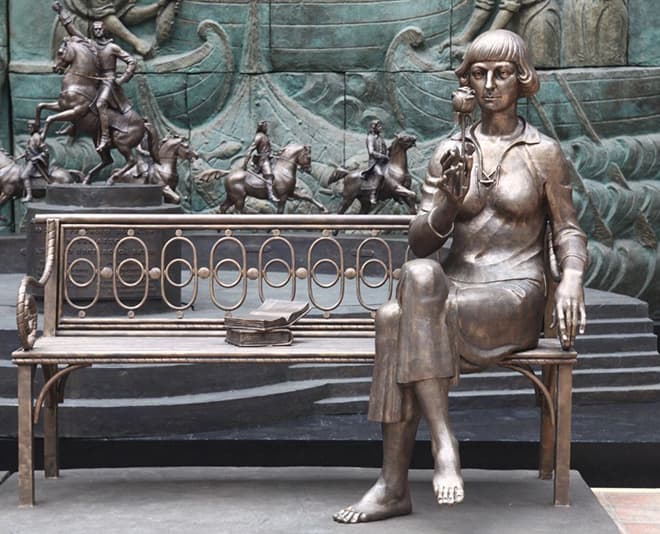 Monument to the work of Zurab Tsereteli, Saint-Gilles-Croix-de-Vi, France | Evening Moscow
Monument to the work of Zurab Tsereteli, Saint-Gilles-Croix-de-Vi, France | Evening Moscow In 1937, Ariadne received such a right, six months later Sergei Efron secretly moved to Moscow, since in France he was threatened with arrest as an accomplice in a political assassination. After some time, Marina herself officially crosses the border with her son. But the return turned into a tragedy. Very soon, the NKVD arrests the daughter, and then her husband Tsvetaeva. And if Ariadna after death, after serving over 15 years, was rehabilitated, then Efron was shot in October 1941.
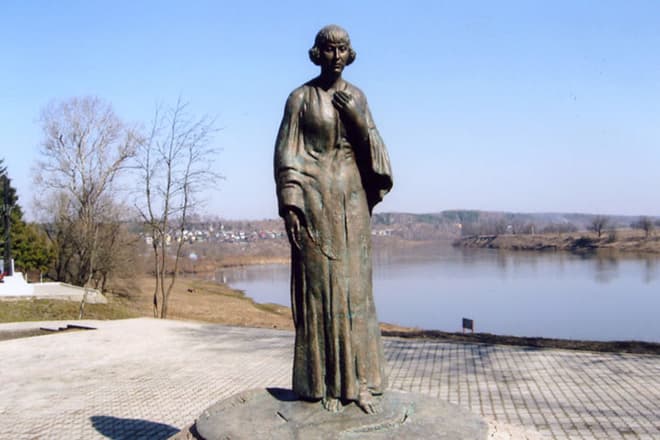 Monument in Tarusa city | Pioneer Tour
Monument in Tarusa city | Pioneer Tour However, his wife did not know about it. When the Great Patriotic War began, a woman with a teenage son went on an evacuation to the town of Yelabuga on the Kama River. To get a temporary residence permit, the poetess is forced to get a job as a dishwasher. Her statement is dated August 28, 1941, and three days later Tsvetaeva committed suicide by hanging herself in the house where she and Georgy were assigned to stay. Marina left three suicide notes. One of them she addressed to her son and asked for forgiveness, and in the other two she turned to people with a request to take care of the boy.
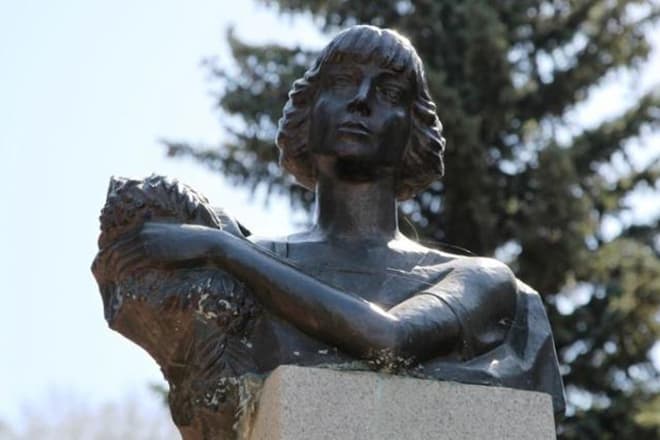 Monument in Usen-Ivanovskoye village, Bashkiria | School of Life
Monument in Usen-Ivanovskoye village, Bashkiria | School of Life It is very interesting that when Marina Tsvetaeva was just about to evacuate, her old friend Boris Pasternak helped her in packing things, who specially bought a rope for tying things. The man boasted that he got such a strong rope - “at least hang yourself” ... It was she who became the instrument of Marina Ivanovna's suicide. Tsvetaeva was buried in Yelabuga, but since the war was going on, the exact place of burial remains unclear to this day. Orthodox customs do not allow the burial of suicides, but the ruling bishop may make an exception. And Patriarch Alexy II in 1991, on the 50th anniversary of his death, took advantage of this right. The church ceremony was held in the Moscow Church of the Ascension of the Lord at the Nikitsky Gate.
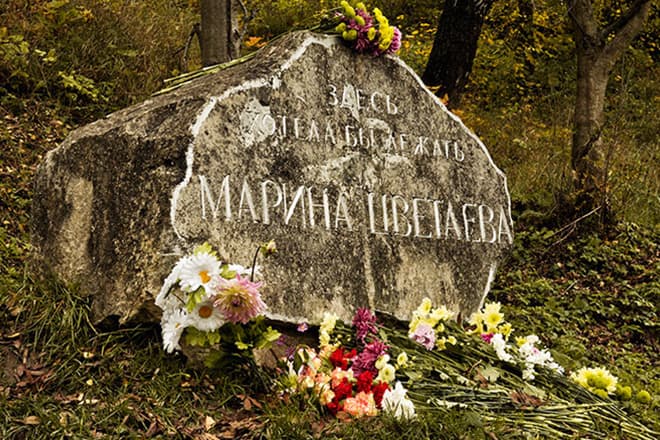 Stone of Marina Tsvetaeva in Tarusa | Wanderer
Stone of Marina Tsvetaeva in Tarusa | Wanderer In memory of the great Russian poetess, the museum of Marina Tsvetaeva was opened, and more than one. There is a similar house of memory in the cities of Tarus, Korolev, Ivanov, Feodosia and many other places. A monument by Boris Messerer was erected on the banks of the Oka River. There are sculptural monuments in other cities of Russia, near and far abroad.
Collections
- 1910 - Evening Album
- 1912 - Magic Lantern
- 1913 - From two books
- 1920 - Tsar Maiden
- 1921 - Swan Camp
- 1923 - Psyche. Romance
- 1924 - Poem of the Mountain
- 1924 - Poem of the End
- 1928 - After Russia
- 1930 - Siberia
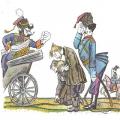 “Lefty” - a summary of the work N
“Lefty” - a summary of the work N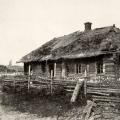 Turgenev, "Biryuk": a summary
Turgenev, "Biryuk": a summary Comedy A.N. Ostrovsky "Poverty is not a vice": a summary of the work
Comedy A.N. Ostrovsky "Poverty is not a vice": a summary of the work